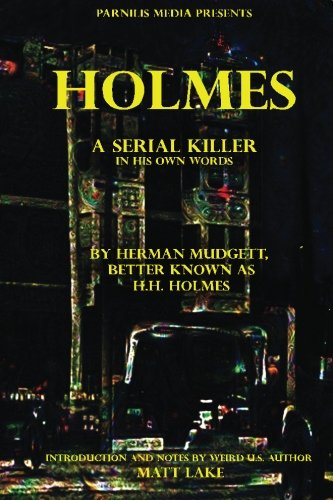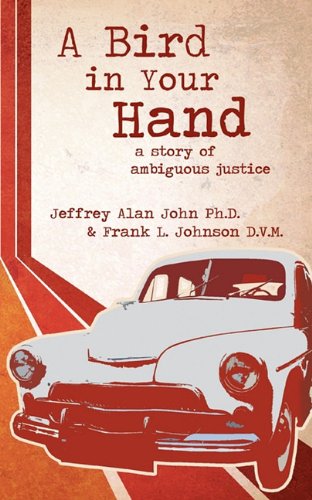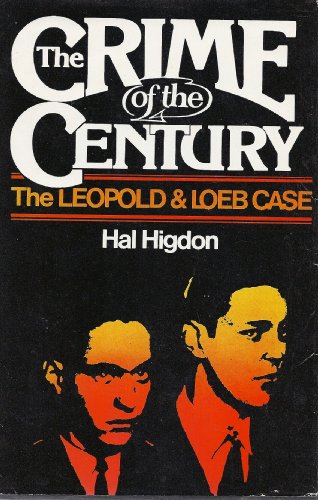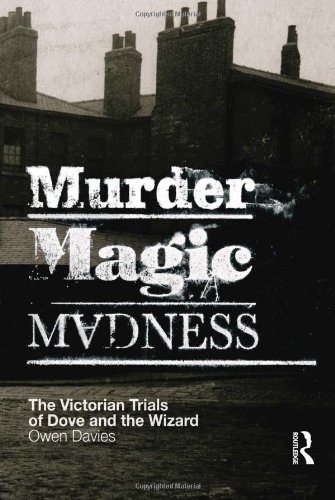
True Crime Studies: “Murder, Magic, Madness” recounts a very strange crime in a very strange time
Penned by Owen Davies, a historian on modern and contemporary witchcraft, Murder, Magic, Madness: The Victorian Trials of Dove and the Wizard is the perfect book for anyone that lives for the cold hard facts. That’s primarily what this book is. There are no real theories or opinions or deep psychological analysis. Everything recounted in Murder, Magic, Madness is documented in history and told with about as much charisma as a technical manual. Not saying that the book is bad, or boring, only that it feels a bit like an Encyclopedia.
I am impressed with the amount of information that Davies gives though. There’s very little detail about this crime available, which means Davies must have worked mega hard on his research. It’s admirable, the amount that he shares, but it’s a shame that he writes it with such frankness.
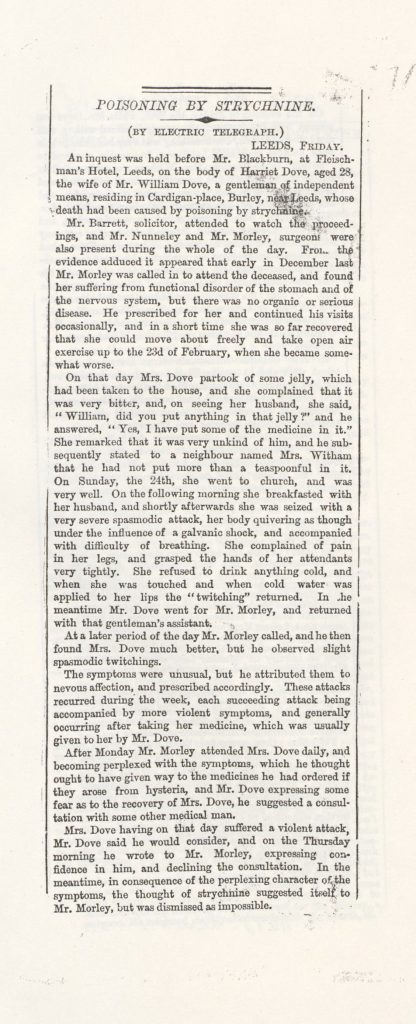
In 1850s England, in a time when people were living between magic and science, there was a man named William Dove who murdered his wife Harriet, and he wasn’t at all discreet about it. Dove was an interesting fellow. Raised by devout Methodists that dotted on him, William was a true problem child that grew into an even more difficult adult.
Although there weren’t many proper diagnoses available during this time, it’s possible that the man had both a mental illness and a learning disability. He had violent mood swings that came without warning and seemed incapable of grasping a concept if too complicated. The author assumes he had Type 1 Bipolar Disorder and the theory certainly matches up with Dove’s many symptoms.
Dove struggled through adulthood, until one day, he meets a woman who falls in love with him. A strange woman with a presumably equally unpredictable temper named Harriet, and these two had a strange marriage. Of course, none of their home life is discussed in great detail but pieced together through first-hand accounts. House servants, neighbors, and friends who all describe the relationship as being like that of Frank and Monica from Shameless. A mix between extremely happy, extremely sad, childlike puppy love and violent explosions, up until the day that Dove decided to kill her.
Cunning Folk
The beginning of Dove’s demise started with Henry Harrison, a cunning-folk, and a real do**hebag. Cunning-folk were “professional” practitioners of magic in Britain. They were basically fortune-tellers and fake wizards that called themselves doctors. Obviously, most were frauds. The ones that weren’t could just be called herbalists. They were popular during a time when science was getting difficult to swallow and a lot of people found comfort in magic. Life was hard and, like religion, magic let people hold on to the belief that they held some kind of power over their life.
Davies actually wrote another book all about cunning-folk titled Popular Magic: Cunning-folk in English History so if you ever want to know more you can check that out.
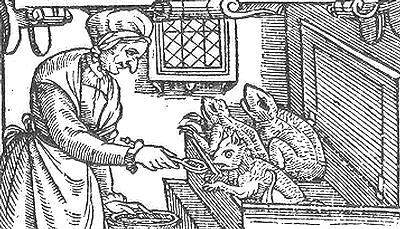
Harrison was a cunning-folk who lived near the Dove’s and quickly became a person of great fascination for William. According to Murder, Magic, Madness, cunning-folk were often used to track down stolen possessions, which is how the two men supposedly met. Dove was mighty impressed with Harrison’s “skills” and started seeing him for other problems which included domestic issues, particularly involving his wife.
It was technically Harrison’s idea to kill her, but Dove needed no persuasion to go along with the plan. To get him on board, Harrison promised Dove that after Harriet died, fate would see him remarry a new wife who would not only be more beautiful but also rich. Harriet wasn’t exactly a “Stepford Wife”. She talked back, had a temper, and fought her husband’s raging alcoholism. So hearing that he was soon due a new and younger wife, Dove spurred into action and he slowly started the process of poisoning Harriet with strychnine.
Immediately after she got sick, he proceeded to go around the town and make sure he looked as guilty as humanly possible. I’m going to be honest, this whole section of the book had me in hysterics. The things Dove did to make sure he wouldn’t be suspected could’ve made it on the list for the world’s dumbest criminals. It took several days for Harriet to die, as he would give her numerous doses of poison, but every time she showed signs of improvement, Dove would straight up tell people she was going to die. Her doctors and friends came to check-in, and cheer at the color returned to her cheeks, only for Dove to walk in the room and just start talking about funeral arrangements. He even went to the coroner, or the equivalent of one back then, and ask if there was any chance that an autopsy wouldn’t be performed on Harriet.
You’d almost think he was trying to get caught, or maybe he was just that stupid. By the time someone suspected something it was too late. Harriet was dead and it wasn’t an easy passing. She clearly suffered and Dove never got this new wife he was promised. Instead he got shackled and carried off to the jailhouse.
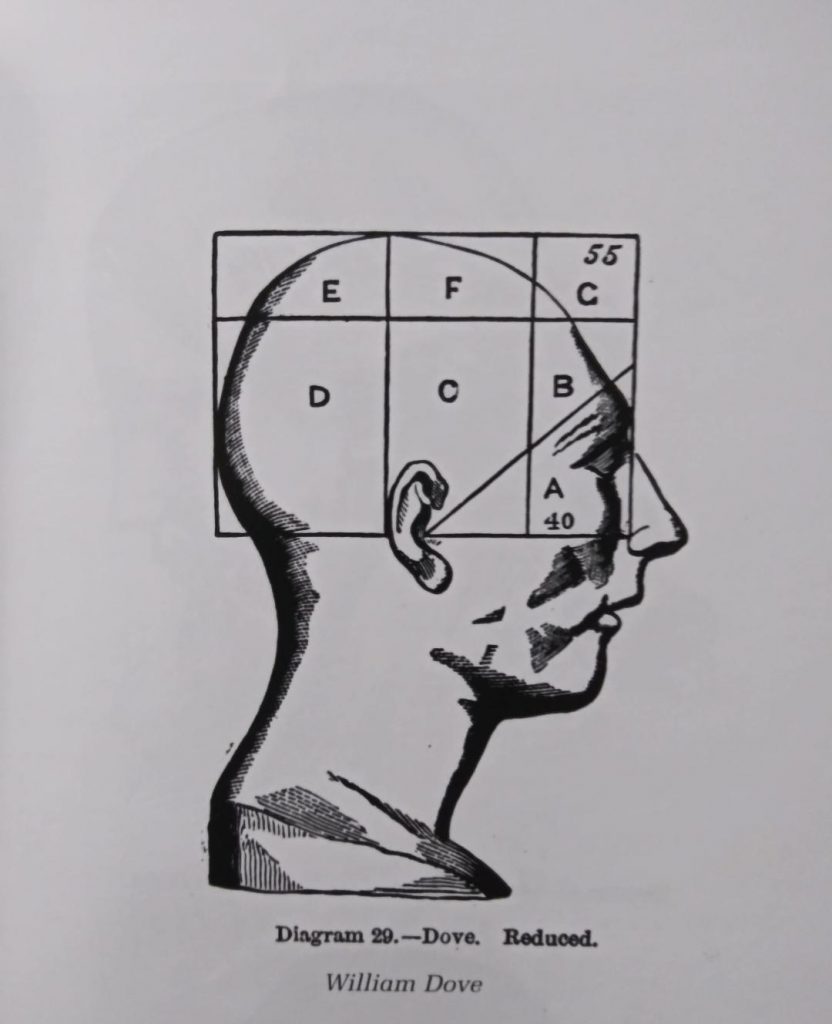
I have my own theory about why Harrison suddenly suggested that Harriet be killed and it involved the custody of a walking stick. Harriet and Harrison made no attempts to hide their apparent distaste for one another but it was only after Dove decided to gift his wizard friend his own personal walking stick that the relationship turned dangerously sour. When Harriet found out her husband gave his walking stick away to a quack she demanded he that get it back. She even went over to Harrison’s house to forcibly reclaim it. Eventually, she succeeded and Dove got his stick back, but not before Harrison carved his initials into the handle. Almost immediately after this dispute is when the plan to kill Harriet started taking form. Meaning there’s a strong chance Harrison made the suggestion all out of spite. Don’t come between two men and their gift exchange.
Trial and aftermath
I’m actually shocked by how thin Murder, Magic, Madness is considering how jammed back it is. It crams in as much as it can in under 300 pages and a lot of it has to do with the murder trial. This takes up most of the book, which might be why I often found myself bored with it. I hate everything about court. One of the reasons why I can never finish a John Grisham novel.
Most of the court sections feel like a transcript; “characters” pop in one after another, every defense and every argument is summed up to its bare minimum, letters written by Dove are presented as well as statements made by witnesses. There’s the introduction of the insanity defense which just introduces several passages of experts arguing over Dove’s mental state with some claiming he was totally deranged and others assuming he was mentally handicapped. It was a “moral insanity” versus “moral idiocy” debate with a few crying out “inborn imbecility.”
It doesn’t end there though. Midway through the trial, Dove attempted a deal with the Devil that he just stole word for word from Goethe’s rewrite of Christopher Marlowe’s play The Tragical History of Doctor Faustus. It’s probably the weirdest detail of this story, right along with that walking stick. In the end, Dove was declared guilty and sentenced to hang. Harrison was then tracked down and charged for a multitude of offenses after his past was dug up and people discovered his many past deeds.
No one remembers William Dove today, nor Henry Harrison, but they definitely had an impact on history. Harrison caused a surging fear of intellects while Dove created a reluctant acknowledgment of insanity in relation to crime among the middle and upper class. Why Dove did what he did is never 100% understood as it’s a crime that happened 164 years ago and despite his eagerness to get Harriet out of the picture, I personally got the feeling that Dove wasn’t completely aware of the fact that poisoning Harriet would have resulted in a dead wife. There was a theory that he really believed Harrison’s prediction about Harriet’s death and that by poisoning her he was only speeding up fate.
Either way, Murder, Magic, Madness is a big court transcript sandwiched between two history lectures. Slightly boring, a bit monotone, but you’ll come away with a new look at the evolution of crime. Especially the change in shock value. Two quotes from two newspapers of that time: “This miserable story of folly and of crime goes beyond the boundaries even of fiction”- Western Flying Post, and “…a stranger story than his never passed human lips”- The Leeds Times. Imagine how scandalized they’d be if they could see some of the murder cases going on today.
 (3 / 5)
(3 / 5)
Book Reviews
A Stellar Debut Novel, We Used To Live Here
Imagine this. You’re home alone, waiting for your partner to return, when you hear a knock on your door. You answer it to see a family of five, bundled up against the cold. The father, a kindly older gentleman, explains that he used to live in this house as a boy. And he would love to show it to his family.
Do not let them in.
The story
Released in June 2024, We Used To Live Here is author Marcus Kliewer’s debut novel. It tells the story of Eve, who just purchased a beautiful house with her partner, Charlie. Their plan is to flip the house and sell it.
One night, while waiting for Charlie to come home, Eve is surprised by a knock at the door. It’s a man named Thomas Faust and his family.
Thomas explains that he grew up in the house and hasn’t been in the area in years. Would Eve let them in so that he can show the home to his children?
Against her better judgment, Eve lets them in. She regrets this almost at once when Thomas’s daughter vanishes somewhere into the house.
What worked
I always appreciate a book that allows you to play along with the mystery. And this book does that better than just about any other I’ve seen.
Pay close attention to the chapters, to the words that aren’t there. To everything about this novel.
This is mostly down to Kliewer. This is ultimately his work of art. But the production value is also fantastic. I don’t want to ruin the multiple mysteries, so I’ll just say this. There are clues in this book that require some specific artistic choices in the page layouts in this book. And I loved that.
If you’d like to experience another horror book review, check out this one.
We Used To Live Here is also the kind of story that makes you question everything right along with the main character, Eve. Eve is a great main character. But she might be an unreliable narrator. She might be experiencing every single horror described, exactly as it’s described. Or, she might be having a psychotic breakdown. Through most of the book, we can’t be sure. And that is so much fun.
Finally, the weather plays a large part in this story. There are several stories in which the weather or the land itself could be considered a character. Even an antagonist. This is certainly one. The winter storm is the thing that traps the family in the house with Eve. It also makes escaping the home difficult. Reading this book during the winter was especially impactful. Most of us know what it feels like to be shut in by a storm. I’ve personally lived through some of those storms that are just referred to by their year, as though they were impactful enough to claim the whole 365 days for themself. And that was with people I liked. Imagine what it would feel like with strangers. It’s a staggering thought and one that we explore in depth in this book.
In the end, We Used To Live Here is a fantastic book. It’s the sort of story that sneaks into your brain and puts down roots. And if this is just the first book we’re getting from Kliewer, I can’t wait to see what else he comes up with.
 (5 / 5)
(5 / 5)
Book Reviews
Exploring real terror with The House of My Mother
As a disclaimer, this is a review of The House of My Mother from a critical perspective. I will not be discussing my opinions of the legal case against Ruby Franke and Jody Hildebrandt. I will be discussing the merits of the book as a work of true crime alone.
In 2015, Ruby Franke started a YouTube channel called 8 Passengers. In August of 2023, Franke and her business associate Jodi Hildebrandt were arrested for, and later plead guilty to, charges of aggravated child abuse. And in January of this year, Shari Franke told her story in The House of My Mother.
The story
The House of My Mother is the true story of Shari Franke, the oldest child of one of the most famous family vlogger families.
As a child, Shari came to the conclusion that her mother didn’t like her. Soon, she began to fear her mother’s anger.
Things got significantly worse when Ruby started their family vlog. All of the families most intimate moments were splashed across the internet for anyone to watch. This became a living nightmare for Shari.
Of course, that was only the start of the family nightmare. Because Ruby was about to meet someone who would reinforce all of the darkest parts of herself.
Eventually Shari manages to escape her home. But her younger siblings were still in her mother’s clutches. She had to save them, and her father, from the monster her mother had become.
What worked
Through the book, Shari only ever mentions the name of one of her siblings, Chad. This is because Chad is the only of her siblings that is an adult at the time of the publication.
There are children involved in this story. Children who’s lives and privacy have already been damaged. Shari didn’t want to do that to them again, and neither do I.
It probably won’t surprise you that this book is full of upsetting details. But not in the way you might imagine.
Nowhere in this book will you find gory details about the abuse the Franke kids suffered. And I consider that a good thing. Those sort of details are all fun and games when we’re talking fiction. When it’s real kids who are really living with the damage, it’s not a good time.
What you’ll find instead is a slew of more emotionally devastating moments. One that stuck with me is when Ruby’s mother gives her a pair of silk pajamas as a gift after Ruby gave birth to one of her babies. Shari asks Ruby if she’d bring her silk pajamas when she had a baby. Ruby responds that yes, when Shari becomes a mother they can be friends.
What a lovely way to make a little girl feel like she’s not worth anything unless she reproduces. And, if she does decide to have children, who is going to bring her silk pajamas?
In the end, this isn’t a story about ghosts or demons. It’s not about a serial killer waiting on a playground or in the attic of an unsuspecting family. Instead, this is a story about things that really keep us up at night. It’s the story of a woman so obsessed with perfection that she drove away her eldest daughter. The story of a young woman who’s forced to watch from afar as her beloved brothers and sisters are terrorized and abandoned. These are the sorts of things that really keep us up at night. These are the real nightmares.
More than that, though, The House of My Mother is a story of survival. It’s about a family that was ripped apart and somehow managed to stitch itself back together again. It’s about a brave young woman who managed to keep herself safe and sane in the face of a nightmare. If you haven’t read it yet, I can’t recommend it enough.
For more like this, check out my review of Shiny Happy People.
 (5 / 5)
(5 / 5)
Book Reviews
Book Review of Boreal: an Anthology of Taiga Horror

Boreal: an Anthology of Taiga Horror is a collection of twenty-two haunting tales that dwell in the deepest darkest woods and frozen wastelands, edited by Katherine Silva and including Haunted MTL’s very own Daphne Fauber. Each story has even been gifted with its very own poster, hinting at the horrors to be found within it, bestowing a beautiful visual collection as well.
The tales are varied and touch upon the environment in new and different ways, each hearkening to a sort of epiphany or raised awareness. These stories exude both dread and wonder at the smallness of our human existence in contrast to the sacred world we have isolated from, sheltering ourselves in our comfortable houses with centralized heat and everything we could possibly need or want at the ready. The taiga becomes a sanctuary outside of our own dulled awarenesses. It is a holy place imbued with powers beyond mortal human reach, a wilderness that threatens to swallow us – both whole and bit by bit, simultaneously.
The protagonists enter into this realm through ritual, superstition, longing, stubbornness, and their own hubris – yearning to survive its dangers, and to make their own marks upon it. The starkness of their surroundings harbors delicate moments that would be all too easily missed if not deliberately sought or pointed out. The softness of fur, the dappled sunlight shining through trees, the hazy clouds of breath forming in crisp air, the brittleness of bleached bone… those quiet experiences that beg to be forgotten, to lay safely sleeping just below the frozen surface, awaiting spring.
There are those who followed in the footsteps of their predecessors, seeking to escape the constraints of their parent’s and elders’ indoctrination, traditions, madness, and abuse, yearning to find their own way despite also being inextricably bound to their own pasts. There are those who just wanted to go for a walk in the woods, and remained forever changed by what they experienced. There are those who wished to impose their will upon the wilderness, their order falling to disarray, unable to make lasting impact. There are those who sought to leave behind the world of mankind, looking for oneness in the natural order of things through isolation, leaving a bit of themselves behind after being consumed by the terrors they encountered. There are those who truly found communion with the woods, became one with its wildness, and invited its spirit into their hearts to find peace, even at cost of their own lives. And then, there are the spirits themselves…
 (3 / 5)
(3 / 5)
All in all, I give Boreal: an Anthology of Taiga Horror 3.0 Cthulhus. I love existential angst so I found it to be an enjoyable read, and I appreciated the myriad manners in which the biome was explored. But there were points in which I found myself struggling to follow along, as if the words were swept up into their own wilds in ways that alienated myself as reader, as if my mere voyeurism into this otherworldly place was not enough to comprehend the subtle deviations in storytelling mannerisms fully. I suppose in some sense this seems appropriate, but at the same time, it left me feeling a bit unfulfilled, as if I had missed a spiritual connection that should have resonated more deeply.


